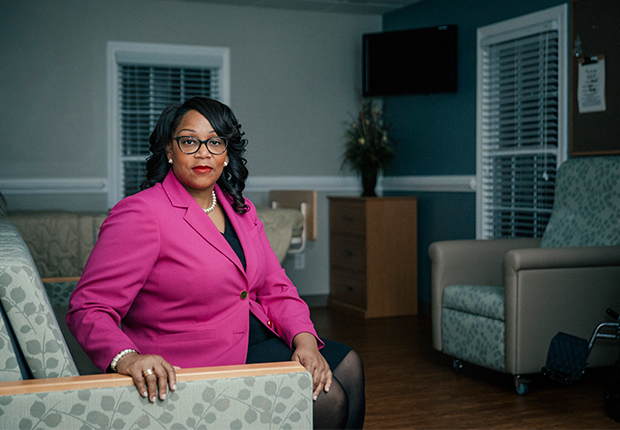AARP Hearing Center

By Drew Jubera
Jacquita White Blount, executive director of Optum Palliative and Hospice Care in Macon, has seen it all.
Family members or friends with financial power of attorney have purchased vehicles, wiped out bank accounts, stolen debit cards, sold off furniture, bought bigger homes—all by abusing their access to older Georgians’ money and property. The consequences are often devastating.
“There are sick people out there, and they prey on the most vulnerable,” said Blount, 47. “We have a duty to report them to local authorities. I think we’re just scratching the surface of the level of this stuff happening.”
Hard data on elder abuse aren’t broken down to count the number of cases involving misuse of funds by a financial power of attorney. But there’s a consensus among prosecutors, law enforcement officials and elder advocates that the problem is growing.
“Part of my job is to train local law enforcement that power of attorney is not a license to steal,” said Heather Strickland, assistant special agent in charge of the at-risk adult abuse unit of the Georgia Bureau of Investigation. “A lot of people still think it’s a civil issue, and a lot of times it’s not.”
Spelling out the criminal aspects of this kind of elder abuse and clarifying what someone with a financial power of attorney can and cannot do are one area addressed by the Uniform Power of Attorney Act.
That’s one of the bills concerning the needs and interests of older Georgians that AARP will focus on during the state legislative session that begins Jan. 9. A version of the bill has been enacted in at least 21 states.
‘Win-win’ at the workplace
Also this session, AARP Georgia will support “work and save” legislation to make it easier for small businesses to create savings accounts for their workers.
About 53 percent of Georgia’s private-sector employees—roughly 1.7 million—work for an employer that does not offer a retirement savings plan. This leaves many retirees dependent on Social Security, which provides an average monthly benefit of about $1,240, and their savings, which in the typical working-age household are about $2,500.
“Here’s something that allows a small business to create a retirement plan that makes it easier for employees to save and relieves some of the burden on the employer to implement it,” said Lee Baker, 49, of Stone Mountain, AARP Georgia state president. “It’s a win-win.”
AARP Georgia also is supporting the Family Care Act, which would allow employees to take up to five earned sick days to care for a loved one.
“There’s a benefit for everyone,” Baker said. “If I’m taking care of my mother and she’s able to stay in her home longer, that means the state and all the rest of us are not chipping in to take care of my mother if she has to go to a nursing home.”
AARP also will push for increasing oral health care by allowing dental hygienists to clean teeth in nursing home facilities without a dentist present, and for expanding the registry of abusers of older adults beyond nursing assistants to include a broader range of home care workers.
“We’re looking for opportunities in all those initiatives to make sure seniors are represented and do what we can to advocate for the 50-plus population,” said Melissa Sinden, AARP associate state director for advocacy.
Drew Jubera is a writer living in Atlanta.































































